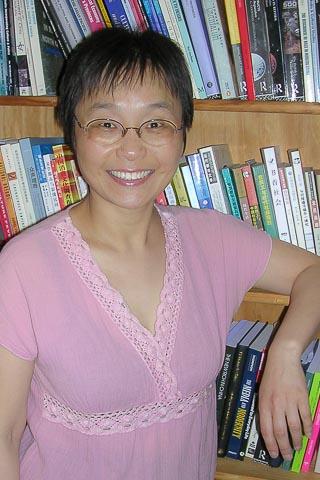- Posted on 2 May 2025
This article appeared in Crikey on May 2 2025.
Until this week, few Chinese-Australians had heard of Liberal Senator Jane Hume. But her appearance on the Sunrise morning show on Wednesday changed that. Sparring with Minister for Housing Clare O’Neil, Hume literally raised a presenter’s eyebrow when she said that among those handing out leaflets for O’Neil “might be Chinese spies”.
Within hours of the Sunrise interview, a clip of it appeared on WeChat, quickly followed by a dozen WeChat vlogs featuring Hume’s “Chinese spies” remark. Numerous vloggers commented that the Liberals have never trusted Chinese-Australians, and that their attitude towards Chinese-Australian communities has always been to “use and then discard”.
One comment on a video said: “If they’re already saying this about us when in opposition, can you imagine what misery they’re going to subject us to if they get elected?”
Taking stock of online reactions to Hume’s remark, Sydney Today, the widely read Chinese-language digital outlet, published an article reporting “unanimous condemnation of Hume, without a single comment defending her”.
Labor politicians were also quick to respond. NSW Labor MP Jason Li posted a video of himself speaking in Mandarin, describing Hume’s remark as “unacceptable”:
Chinese-Australians have lived in this country for more than 200 years. We are not spies. We’re loyal citizens. Hume’s remark shows that Dutton and the Liberal Party have not changed their attitude at all towards Chinese-Australians. We don’t want to return to the anti-Chinese era.
Foreign Affairs Minister Penny Wong also released a WeChat video on Thursday, ending her speech with an assurance that:
Labor will always value Chinese-Australian communities, not just when it’s convenient at election time.
Hume was one of the two authors behind the Liberals’ internal review following its 2022 election loss, which concluded that the party had a China problem. Its recommendation:
Rebuilding the party’s relationship with the Chinese community must therefore be a priority during this term of Parliament.
Along with her Liberal colleague Brian Loughnane, Hume cautioned her colleagues:
There is a particular need for the party’s representatives to be sensitive to the genuine concerns of the Chinese community and to ensure language used cannot be misinterpreted as insensitive.
To be fair, until the last couple of months, the Liberals had tried hard to do just that. But facing the growing likelihood of another loss, that self-prescribed medicine was apparently thrown out the window. It seems that when push came to shove, Hume did the opposite of what she preached.
While Labor was keen to capitalise on Hume’s remark to endear itself to Chinese-Australian voters, it is at the same time finding itself on the back foot. While Clare O’Neil denies any “wrongdoing”, a report in The Australian alleges that 10 Chinese-Australian volunteers for her campaign were “linked to an organisation associated with Beijing’s foreign influence operation”. The AEC has now referred these allegations to the Electoral Integrity Assurance Taskforce over Chinese recruits.
Hume’s allegation about Chinese spies was based on what she read in the media. “That’s what the newspapers are saying”, she said on Sunrise. Incidentally, a week ago, when questioned on Radio National Breakfast about the origin of her claim that foreign students were occupying 42% of inner-city housing in Sydney, Pauline Hanson gave a similar answer: “That figure came out of some article that I read in the newspaper”.
In the last federal election, media stories featuring Chinese-Australians mostly fell into two boilerplates. The first involved disinformation on Chinese-language social media platforms; the second involved allegations of Chinese influence or interference in the election. This time, the first narrative, predictably, has been recycled, whereas the second didn’t resurface until the last two weeks of the election campaign.
One article that may have informed Senator Hume appeared in The Age and The Sydney Morning Herald in late April. The story features a video showing two Mandarin-speaking volunteers for Kooyong’s teal candidate Monique Ryan, with one volunteer claiming they were directed to support Ryan by Ji Jianmin, president of the Hubei Association ‚Äî the organisation that has been accused of working with a Chinese Communist Party agency.
The story re-deployed stock phrases in the “Chinese influence” narrative, pointing to “links to the Chinese Communist Party’s foreign influence operation”, which “raise questions about Beijing’s ongoing interest in Australia’s election”. Although the entire story hinged on Ji as a possible agent of Chinese influence, there was no input from Ji himself. Little tangible evidence was given to back up the “links” claim, and it is not clear who has raised questions about Chinese interference, other than the journalists themselves wanting to construct a story about possible Chinese influence.
Ji told Sydney Today that he’s an Australian citizen and has lived in Australia for 29 years. He maintains he has no direct contact with any Chinese official organisations, nor has he received any money or instructions from the CCP. Speaking to the ABC, Ji said that although he had shared his positive views about Ryan, he did not pressure anyone to vote for her.
Tharini Rouwette, the founder of a group called the Centre of Multicultural Political Engagement, Literacy and Leadership (COMPELL), was the person who filmed the video. Talking to Crikey, she said she was “disappointed” to see The Age story, and was also “disgusted” with the way in which the story had fed into Liberal politicians’ allegations of foreign interference by Chinese-Australians. Rouwette has issued a statement and also told The Australian Financial Review that she filmed the video to showcase diverse civic engagement, but instead it had been “weaponised”.
The Age journalists contacted Rouwette for comment, and among many things, she had this advice for them:
At COMPELL, we believe in upholding journalistic integrity and encouraging responsible reporting, particularly where matters intersect with multicultural communities. Allegations or assumptions of foreign interference are extremely serious and should be based on verifiable facts, not assumptions.
Unsurprisingly, The Age story did not use any of Rouwette’s comments.
Responses to The Age story from many Chinese-Australians were a mixture of disbelief and resignation, even though they do not personally know Ji Jianmin and cannot vouch for his political innocence. They are filled with disbelief because, while this was the main narrative in the last election, many Chinese-Australian had assumed that Labor’s win and its calmer rhetoric had put an end to the media’s penchant for the “agents of Chinese influence” narrative.
They have since realised the virus of suspicion never really went away. Resigned to this Groundhog Day feeling, one WeChat commentator said:
There is an election every three years, and each time Chinese-Australians are trotted out to help score political points and sell papers. I’m sick and tired of it. I just want this election to be over and done with, so that we can be left alone.
The leader of a politically engaged WeChat group was more sanguine: “Hang in there. Only a couple of more days to endure.”



